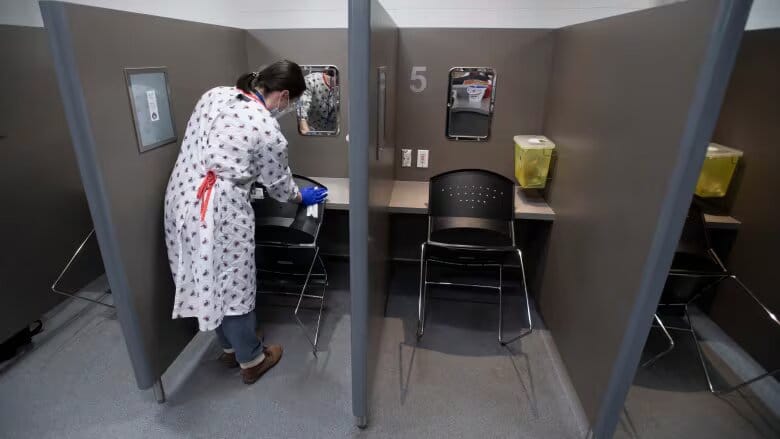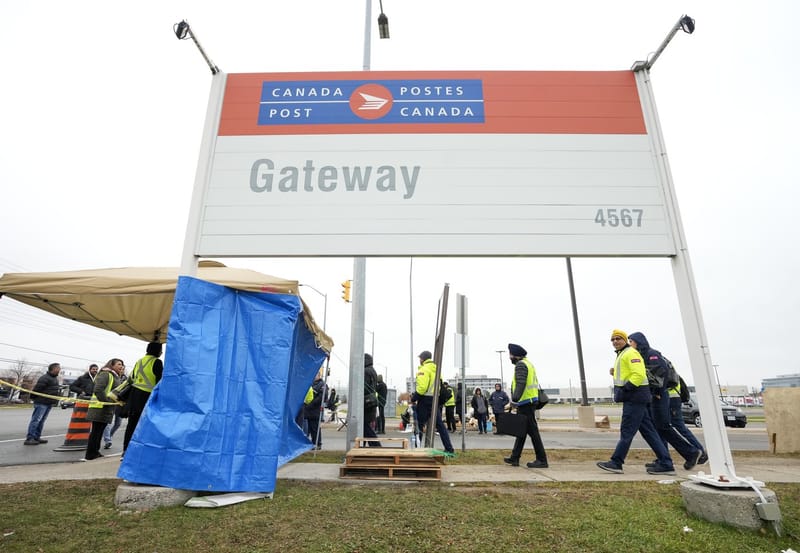Can 'HART Hubs' bridge the gap created by Ontario's supervised consumption restrictions?
Morgan emphasized that the lack of provincial operating funds has been a significant barrier to expanding this model in the past.

Ontario's recent decision to ban supervised drug consumption sites near schools and child-care centres has led to a new approach in addressing homelessness and addiction.
The province introduced the concept of Homelessness and Addiction Recovery Treatment (HART) Hubs, modeled after existing examples in Ontario, particularly in London.
Premier Doug Ford and Health Minister Sylvia Jones have highlighted the initiative as a more comprehensive solution. The province has allocated $378 million to support 19 such hubs across Ontario.
These hubs are designed to provide an integrated approach, offering a variety of services under one roof. London, Ontario, has been a leader in this model, with two hubs already operational.
London's Mayor Josh Morgan explained that these hubs provide a "more intense" level of service with lower staff-to-client ratios compared to traditional homeless shelters. The ultimate goal is to transition individuals into stable housing.
While the hubs do not offer residential addictions treatment on-site, they provide "pathways" to recovery through counseling and referrals to other services.
Morgan emphasized that the lack of provincial operating funds has been a significant barrier to expanding this model in the past.
However, with the new funding commitment, there is optimism that these hubs can now be more effectively developed and sustained, potentially offering a more holistic approach to addiction recovery and homelessness.

Nathan Gardner, the executive director of Oshawa's Back Door Mission, which operates the Mission United hub, believes the HART Hub model can be effectively implemented in various communities across Ontario.
Gardner highlighted that the success of this model lies in its fundamentals: low-barrier access, strong partnerships, and a continuum of care.
Mission United, described as an "integrated care hub," provides a wide range of services, from housing outreach and crisis intervention to basic needs like meals and showers. It also offers addiction services, including withdrawal management plans and nearly daily access to addiction physicians, though it doesn't provide on-site residential treatment.
A key component of Mission United's approach is harm reduction, which Gardner justified by emphasizing that it leads to better health outcomes for clients.
The hub also includes a needle supply program, reflecting its commitment to meeting the immediate needs of vulnerable populations while supporting their long-term recovery.
The Ontario Ministry of Health has indicated that the new HART Hubs will be tailored to meet the specific needs of each community, potentially offering a range of services such as shelter beds, addiction care, primary care, supportive housing, and employment support.

The ministry plans to release more details through a request for proposals later this month, signaling a broader rollout of this model across the province.
The introduction of HART Hubs in Ontario, which will offer addiction recovery and treatment services, has sparked a discussion about the gaps in the province's approach to addiction care.
While the hubs are expected to provide much-needed supportive housing units and addiction recovery beds, experts argue that significant challenges remain, particularly in the availability of residential treatment options.
Nathan Gardner, from Mission United in Oshawa, pointed out that it often takes months to secure a spot in addiction treatment programs, a sentiment echoed by other addiction experts.
Mike Souilliere, director of patient care services for the substance use and concurrent disorders program at the Royal Ottawa Mental Health Centre, noted that wait times for treatment beds are a critical issue.
The delay in accessing treatment can be detrimental, as individuals' motivation to seek help can diminish if they are forced to wait too long.

Souilliere emphasized that when someone is motivated to make changes, it's vital to have treatment spaces readily available.
He cautiously welcomed the creation of additional spaces through the HART Hubs but expressed concern over the exclusion of supervised consumption services and needle exchange programs from the hubs' offerings.
Souilliere argued that these harm reduction programs are essential in bridging the gap for individuals who are not yet ready for full treatment.
By providing these services, harm reduction initiatives can support patients and help them transition into treatment when they are prepared.
The exclusion of these programs from the HART Hubs could leave a significant portion of the population without the support they need until they are ready for recovery.
The debate highlights the complexity of addressing addiction and homelessness, with experts advocating for a more inclusive approach that integrates harm reduction with recovery services to better meet the needs of all individuals.
Experts in addiction and mental health are criticizing Ontario's approach to the new HART Hubs, arguing that the province is creating a "false dichotomy" between treatment and harm reduction.
While the investment in HART Hubs is seen as a positive step, it is also being questioned due to the simultaneous closure of 10 supervised injection sites, which many view as essential components of a comprehensive addiction care system.
Dan Werb, chair in mental health and substance use disorders at Saint Michael's Hospital and the University of Toronto, expressed concern that the provincial government's actions are contradictory.
He acknowledged that the investment in HART Hubs is a positive development, albeit delayed, but argued that closing supervised injection sites undermines the very goal of reaching the individuals who need these hubs the most.
Werb likened the situation to investing in a state-of-the-art hospital but neglecting to provide entryways, emphasizing that harm reduction services are crucial gateways to engaging with hard-to-reach populations.
Carole Sinclair, interim executive director of Ottawa's Rideauwood Addiction and Family Services, also criticized the province's stance, arguing that it creates an unnecessary division between treatment and harm reduction.
Sinclair highlighted that these two approaches are not mutually exclusive but are instead complementary.
She stressed that the impression that one must choose between harm reduction and treatment is misleading and counterproductive, as both are essential parts of an effective addiction care continuum.
The experts' concerns underscore the importance of a holistic approach to addiction care, where harm reduction services are integrated with treatment options to provide a full spectrum of support.
They argue that without maintaining harm reduction programs, the province risks alienating those who are not yet ready for treatment, ultimately making it harder to connect them with the care they need.





